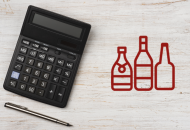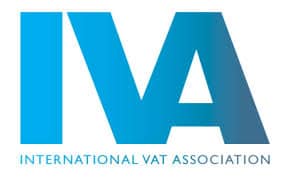Alcohol has always played an important role in European culture and economy. However, its consumption has also been a source of concern for governments, who have sought to control it and profit from it through excise taxes.
The origins of alcohol taxes:
The first taxes on alcohol in Europe date back to Antiquity. The Romans, for example, levied a tax on the sale of wine. During the Middle Ages, alcohol taxes were often used to finance wars and crusades.

The term “excise” comes from a British tax on alcohol introduced in 1650. It derives from the Dutch word “accijns” which means “consumption tax”.
The excise is therefore an indirect tax which applies to the quantity of a product consumed, and not to its value.
The rise of alcohol excise taxes:
The rise of excise taxes on alcohol took place from the 16th century. This period saw the birth of the modern state, which needed new sources of revenue to finance its activities. Alcohol taxes were a particularly attractive source of revenue because they were easy to collect and brought in a lot of money.
The different types of excise taxes on alcohol:
There are different types of excise taxes on alcohol. Taxes can be based on the quantity of alcohol, the degree of alcohol or the value of the alcohol. Some countries also apply specific taxes to certain types of alcohol, such as wine or beer.
You can find the different alcohol excise rates in the EU here or use our simulator to calculate them.
Please note that products subject to excise duty must be declared with an excise number. Excise may be levied on locally manufactured products, even if they are not imported.
Harmonization of alcohol excise taxes:
Within the European Union, excise taxes on alcohol have been harmonized since 1993. This harmonization aims to guarantee the free movement of alcoholic products within the EU and to combat tax fraud. Council Directive (EU) 2020/262 of December 19, 2019, which organizes the overhaul of the general excise regime, has entered into force on February 13, 2023. It replaces Council Directive 2008/118/EC of 16 December 2008. You can have all the details of this directive in our article.
Current statements
Excise taxes on alcohol are a hot topic today. Some countries, such as France, want to increase taxes to reduce alcohol consumption and its harmful effects on public health. Other countries, such as the United Kingdom, want to lower taxes to stimulate the economy.

The history of alcohol excise duties in Europe is a long fiscal journey. This history is marked by the evolving needs of governments and societies. Today, excise taxes on alcohol are an important public health and economic issue.
Eurotax helps you with your formalities in order to be compliant for the declaration and payment of alcohol excise duties in Europe. Find all the information on our dedicated B2C and B2B pages (the certified consignee).
Do not hesitate to contact us for any request for information.






















